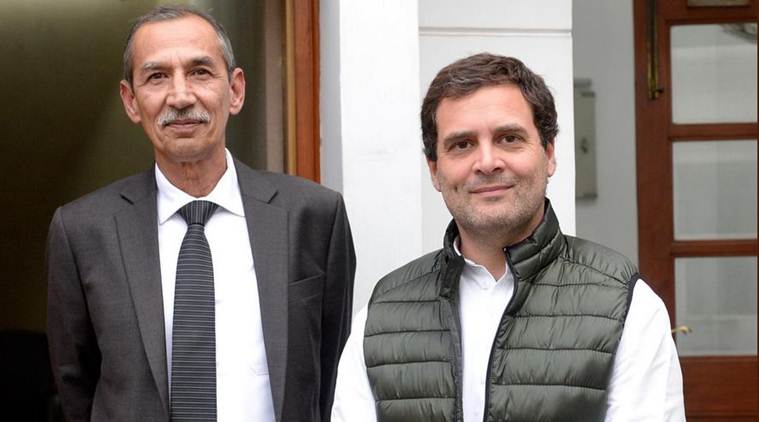
Lt General (retired) D S Hooda, who was the Northern Army Commander in September 2016 when Indian troops carried out surgical strikes on terror launch pads along the Line of Control following the Uri attack, will now lead a task force set up by the Congress to prepare a vision paper on national security of the country.
Congress chief Rahul Gandhi on Thursday met the former Army commander to discuss the formation of the task force and its working with a select group of experts to chalk out effective strategies to guard the border, days after 40 CRPF jawans were killed in a terror attack in south Kashmir’s Pulwama district. Pakistan-based Jaish-e-Mohammad had claimed responsibility for the attack.
Taking to Twitter, the party announced, “Congress President Rahul Gandhi met with Lt Gen DS Hooda (retd) to institute a task force on National Security which will prepare a vision paper for the country. Gen Hooda will lead the task force and work with a select group of experts.”
Congress President @RahulGandhi met with Lt Gen DS Hooda (retd) to institute a task force on National Security which will prepare a vision paper for the country. Gen Hooda will lead the task force & work with a select group of experts. pic.twitter.com/06zfIjfbeJ
— Congress (@INCIndia) February 21, 2019
Earlier in the day, the party questioned the “priorities” of Prime Minister Narendra Modi and alleged that the PM continued shooting for a film in the Jim Corbett National Park for his “propaganda and publicity” even as jawans were killed in the terror attack.
Also read | Pulwama fallout: India stops share of river water flowing to Pakistan
Last year in December, while moderating a discussion on the ‘Role of Cross-Border Operations and Surgical Strikes’ at a Military Literature Festival, Hooda had taken a jibe at the Centre, saying the “overhype” of the strikes did not help and “it is not good” when “military operations get politicised”.
“Did the overhype help? I say, completely no. If you start having political resonance in military operations, it is not good. There was too much political banter, on both sides, and when military operations get politicised, that is not good,” he had said.